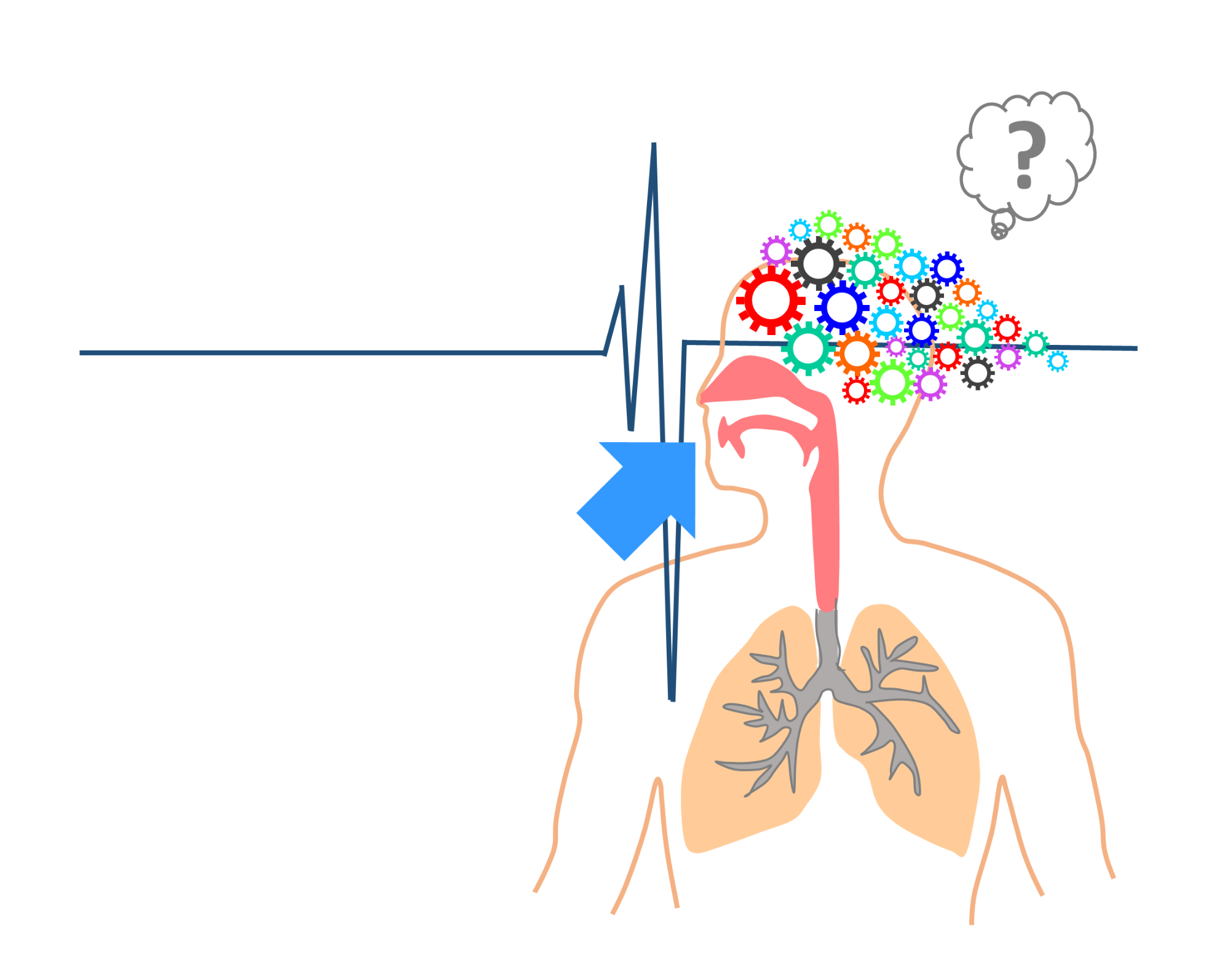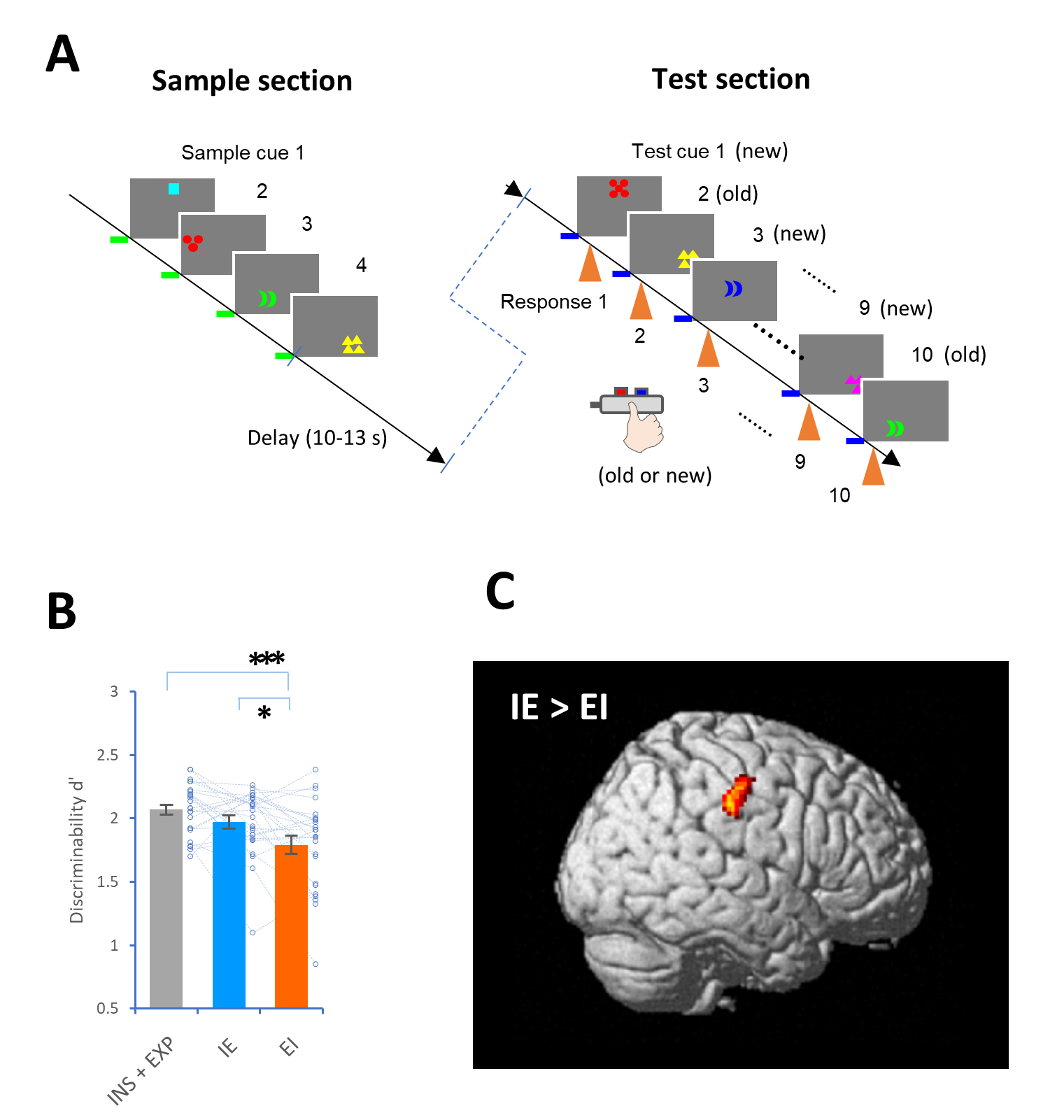About the Corporation
It has become clear that a decline in concentration is related to the "moment of inhaling"

Image: "When you're working on something, the moment you take a breath decreases your concentration."
A research group led by Nozomi Nakamura, assistant professor in the Department of Physiology and Biofunction Hyogo Medical University (located in Nishinomiya, Hyogo Prefecture; President: Koichi Noguchi), and the National Institute for Physiology Sciences, National Institutes of Natural Sciences, conducted a study on 25 healthy male and female volunteers and found that "the timing of breathing can reduce the activity of the parts of the brain that control concentration and attention, resulting in impaired cognitive function."
*A paper on the results of this research will be published in the electronic version of Cerebral Cortex Communications, a sister journal of the international academic journal Cerebral Cortex, on Friday, September 30, 2022 (Japan time).
Research Summary
In this study, we discovered that one of the causes of cognitive decline is "breathing." In this study, we further investigated "what is happening in the brain at the moment of inhalation." Using fMRI (functional magnetic resonance imaging), which can capture 3D images of human brain activity over time, we found that in the brain, concentration is distracted rather than memory itself.
This causes a person's concentration and attention to be interrupted the moment they inhale, which may result in a decline in various cognitive functions, such as a decline in memory and even judgment.
In the future, as part of efforts to improve memory and cognitive abilities, it is expected that effectively controlling breathing will improve concentration and attention, and ultimately help improve performance in all areas, not only in daily life, work, and study, but also in sports and driving.
Research Background
Breathing is one of the most fundamental activities in human life, and differences in breathing rhythm and phase are known to have various effects on the body and brain. In particular, when acquiring external sensory information or performing voluntary movement, it is known that the respiratory phase is "adjusted at a specific timing in accordance with cerebral cortical activity."
In a previous study, our research group revealed that performing memory recall near the start of inspiration (the EI transition period) causes a decline in performance. In this study, to clarify the relationship between the EI transition period during memory recall and brain activity, we conducted experiments using fMRI (functional magnetic resonance imaging), which can capture 3D images of human brain activity over time.
Research Methods and Results
Twenty-five healthy male and female subjects simultaneously monitored changes in airflow through a nasal respiratory pressure sensor cannula during fMRI (3T Magnetom Verio, Siemens). Subjects performed a matching-to-sample recognition task, memorizing four sequentially presented graphic images, each containing information on shape, color, number, and location. Then, for each of the 10 test graphic images, subjects responded by pressing a button to indicate whether the image they memorized was the same as the one they had memorized. Because fMRI data are affected by cortical CO2 fluctuations and respiratory patterns, they were denoised using Multirun ICA-FIX and AFNI's RetroTS program. During memory retrieval, the right temporoparietal junction (TPJa), right middle frontal gyrus (MFG), and dorsomedial prefrontal cortex (dmPFC) showed decreased activity during the EI transfer phase, but this was significantly higher than during memory acquisition and consolidation.
Based on the functions of these brain regions, it is thought that the EI transitional period "affects information processing such as alertness and attention rather than memory itself." These results suggest that the timing of breathing and the coordination of these brain networks are key to controlling brain function, which ultimately affects performance.
Source of research funds etc.
・Hyogo Innovative Challenge project (co-researcher Nozomi Nakamura)
・National Institute Physiology Joint Usage Research (Representative: Nozomi Nakamura)
・Takeda Science Foundation (Representative: Nozomi Nakamura)
・Grant-in-Aid for Scientific Research (15K12055 Representative Hitoshi Koshihisa)

Figure A: "Delayed matching-to-sample task using a figure as a memory task"
Figure B: "Discrimination is an index of the familiarity of recognition memory. Discrimination decreases when the EI transition period (the moment of inhalation) occurs."
Figure C: Brain image taken by fMRI. During the IE transition period (the moment of exhalation), activity increased in the right temporoparietal junction (TPJa) compared to the EI transition period (the moment of inhalation)
Future outlook
This study revealed that "when you inhale, your brain is distracted, rather than your memory itself."
In the future, we hope to uncover more effective breathing techniques to enhance concentration as part of our efforts to improve memory and cognitive ability.
Medical journals to be published (planned)
Publication information
・Thesis title
"Respiration-timing-dependent changes in activation of neural substrates during cognitive processes"
·author
Nozomi Nakamura (※1), Masayoshi Fukunaga (※2), Tetsuya Yamamoto (※2), Norihiro Sadato (※2), Yoshitaka Koshihisa (※1)
*1 Department of Physiology and Biophysics, Hyogo Medical University
*2 Physiology Research Division, National Institute Physiology, National Institutes of Natural Sciences
Inquiries regarding this release
Hyogo Medical University Public Relations Division
TEL: 0798-45-6655 (direct)
FAX: 0798-45-6219
Email: kouhou@hyo-med.ac.jp